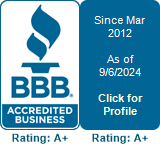IRS Form 668(y)(c) is entitled, "Notice of Federal Tax Lien". The IRS uses Form 668(y)(c) to give notice to the world that a tax lien exists against your property.
WARNING ABOUT LIENS & "REPRESENTATIVES"
This tax lien is filed publicly so everyone can see it. Therefore, immediately after the lien is filed you will receive a flood of telephone calls from "representatives" who claim (& guarantee) that they can eliminate this tax problem. They offer "free consultations" where they prey upon your fears & hopes in order to sell you a very expensive, futile "service". They will steal your money (which could go to the IRS) and harm you by extending the statute of limitations. Of course, they are not lawyers & have no ethical duty to tell you the truth. (See Fraud/Scams)
The Truth about Tax Liens
The lien attaches to all of your property, wherever and however situated and no matter how titled. A Lien is not a Levy. A Levy is a seizure of property. A Lien secures the government's interest in the property for unpaid taxes.
This is more of a problem for people with real estate, especially when you own it jointly with a spouse or someone else. If the real estate is your personal residence the IRS must receive the IRS District Director's approval before they can seize it. So, they are much less likely to seize your personal residence.
But, they can and will seize a rental or other property you own, even if it it jointly held with other people.
More often, the IRS will just wait until you sell the property to get their money. This means you'll have to keep your property, if you can, until we extinguish the tax debt. But, if you do sell the property, the BUYER will have to seek a Discharge of Property from Federal Tax Lien (Form 14135 {income} or Form 4422 {estate}) so they can hold title free of the IRS lien.
Implications
A Lien is terrible for your credit rating and could remain in place for the full limitations time period, without the aid of TaxHelp. The only ways to release a validly filed lien are: 1) Full Payment of the tax, 2) Expiration of limitations period, plus extensions; 3) Acceptance & satisfaction of an Offer-of-Compromise or, 4) Successful completion of Chapter 13 bankruptcy, with taxes included.
Use this Evaluator to see if your taxes can be erased with a Bankruptcy.
But, each of these options has pitfalls & traps to avoid as well as advantages to encourage for your specific situation. For more detailed information, please follow the Prep Steps for IRS Form 668(y)(c) and see Mr. Hopkins in Colorado Springs, Pueblo or Denver before proceeding so we can devise an Action Plan for you to stop this problem!







